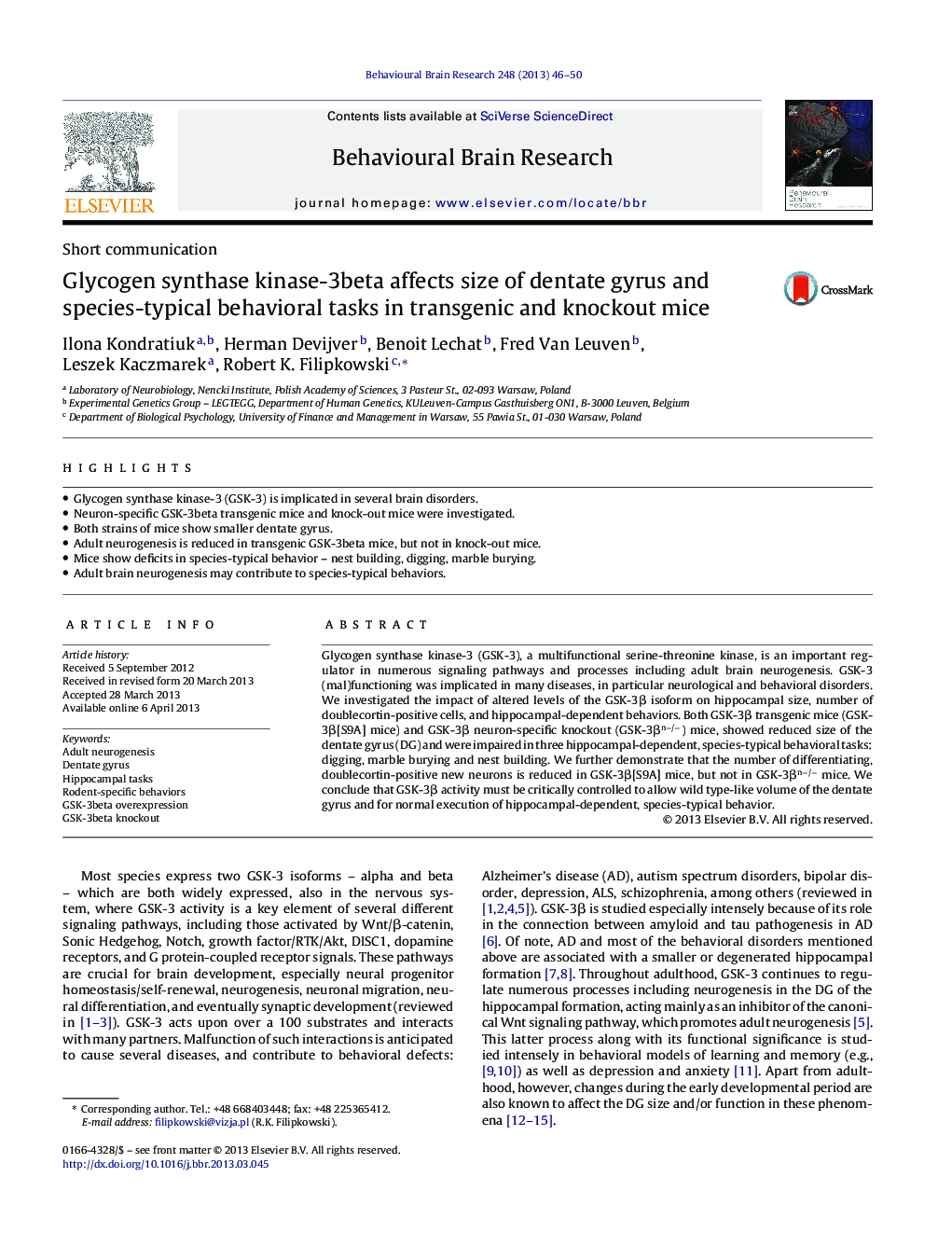| Article ID | Journal | Published Year | Pages | File Type |
|---|---|---|---|---|
| 6259155 | Behavioural Brain Research | 2013 | 5 Pages |
•Glycogen synthase kinase-3 (GSK-3) is implicated in several brain disorders.•Neuron-specific GSK-3beta transgenic mice and knock-out mice were investigated.•Both strains of mice show smaller dentate gyrus.•Adult neurogenesis is reduced in transgenic GSK-3beta mice, but not in knock-out mice.•Mice show deficits in species-typical behavior – nest building, digging, marble burying.•Adult brain neurogenesis may contribute to species-typical behaviors.
Glycogen synthase kinase-3 (GSK-3), a multifunctional serine-threonine kinase, is an important regulator in numerous signaling pathways and processes including adult brain neurogenesis. GSK-3 (mal)functioning was implicated in many diseases, in particular neurological and behavioral disorders. We investigated the impact of altered levels of the GSK-3β isoform on hippocampal size, number of doublecortin-positive cells, and hippocampal-dependent behaviors. Both GSK-3β transgenic mice (GSK-3β[S9A] mice) and GSK-3β neuron-specific knockout (GSK-3βn−/−) mice, showed reduced size of the dentate gyrus (DG) and were impaired in three hippocampal-dependent, species-typical behavioral tasks: digging, marble burying and nest building. We further demonstrate that the number of differentiating, doublecortin-positive new neurons is reduced in GSK-3β[S9A] mice, but not in GSK-3βn−/− mice. We conclude that GSK-3β activity must be critically controlled to allow wild type-like volume of the dentate gyrus and for normal execution of hippocampal-dependent, species-typical behavior.
